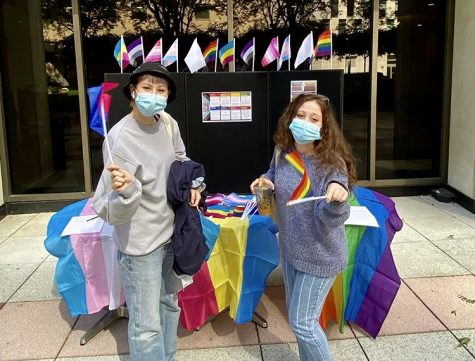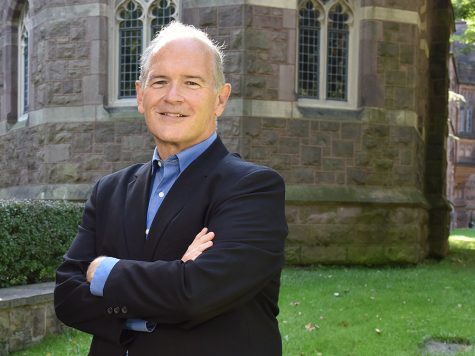Tereze Nika Examines Effect of Unprecedented Times on Students’ Mental Health
The COVID-19 pandemic inspired Tereze Nika to research the pandemic’s effects on students’ career preparedness and hopes for the future. (Courtesy of Tereze Nika)
October 21, 2020
As students continue attending college courses during a pandemic, many have had to reconsider their post-college career plans as COVID-19 changes the world around them. Through her research project, Tereze Nika, FCRH ’21, examines the changes in college students’ career plans and aspirations due to COVID-19. More specifically, Nika is studying the impact that these changes have had on students’ mental health, including their levels of stress, anxiety and overall hopefulness.
The research project also examines the efforts colleges and universities have made to support students’ career choices in internships and career development programs before and duringCOVID-19, and whether these efforts have positively impacted students’ mental health.
Before the COVID-19 pandemic became a topic of discussion, Nika’s original project focused on the levels of preparedness that students felt entering the workforce and whether or not university assistance played a significant role in preparing students. However, the impact of COVID-19 opened an opportunity for Nika. She said she wanted to consider how the pandemic may have altered students’ level of preparedness.
“I decided to focus on COVID-19’s effect on all college students, their career plans and mental health as well as still examine the role colleges and universities played in supporting their student’s careers,” she said.
Nika hypothesized that students who reported changes to their career plans would report having higher anxiety and stress and lower hopefulness than students who reported having no changes to their career plans. She said she also hypothesized that students who used the support offered by colleges and universities, such as help obtaining an internship, would report lower levels of stress and anxiety and higher levels of hope.
“My hope is that this study raises awareness to mental health, specifically of college students, but also that it leads to institutions taking a greater initiative in providing their students with support systems for career development and also their mental well-being,” she said.
COVID-19 provided a challenge to Nika’s research project, as she had to rework her process of creating and conducting a research study to match the pandemic’s virtual needs. Through much trial and error and guidance from Dr. Lindsay Till Hoyt, assistant professor of psychology and Nika’s mentor, Nika overcame the obstacles that COVID-19 put in front of her and created a practical virtual research study. Nika also credited the FCRH Undergraduate Research Grant Committee for funding her project and for being “the only reason why [she] was able to conduct [her] research project.”
The research project is currently ongoing. So far, Nika has been able to run the analyses on the first question, “How do changes in career plans due to COVID-19 affect mental health (i.e., anxiety, hopefulness, and stress) amongst college students?”
Students undergoing a career change have “reported significantly higher anxiety and stress and lower hopefulness” than students who have not changed their career plans, she said. This result supported Nika’s original hypothesis, but it also uncovered other patterns that were not originally predicted.
For example, juniors and seniors reported more changes in career plans than freshmen and sophomores. Additionally, there were significantly higher levels of negative mental health impacts from career changes on students from low-income families than students from higher to medium-income families, according to Nika.
This research project is among the three prior years of experience that Nika has had in Dr. Hoyt’s 3D Lab (The Youth Development, Diversity and Disparities Lab). She said her applied sciences experience has helped her understand that her immediate goal is to apply and attend a graduate program in psychology.
“I hope to apply my knowledge of psychology and research to help investigate organizational problems and help provide companies and employees with answers or solutions,” said Nika.












If you want a picture to show with your comment, go get a gravatar.